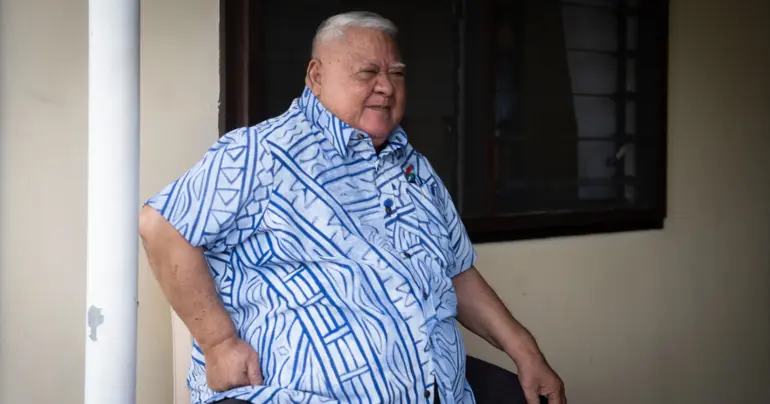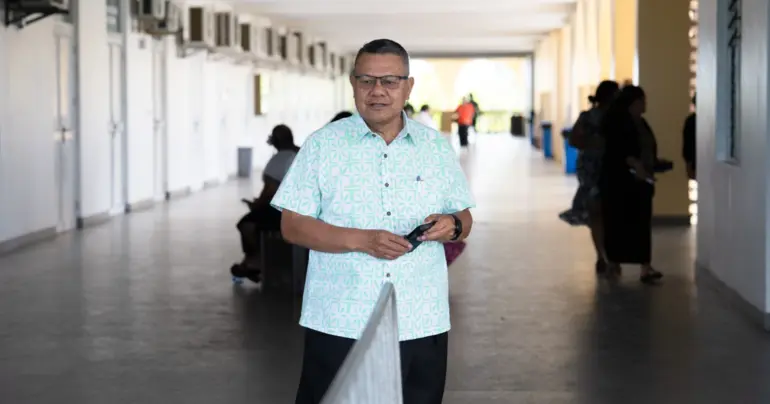A new culture of transition
 By The Editorial Board
•
30 July 2021, 10:50PM
By The Editorial Board
•
30 July 2021, 10:50PM
The rise of a new Government requires more than just a change of who sits in Cabinet or the Government benches.
The new Fa'atuatua i le Atua Samoa ua Tasi (F.A.S.T.) party Government has come to power with an extensive policy manifesto and a vision for making substantial policy changes but also the culture of administration in Samoa.
But Ministers only have so much input into the success of a Government's strategic shift.
It is members of the bureaucracy, the Ministries and the civil service who are at the grass roots level and oversee changes to Government at street level.
We would like to think that that the nation’s bureaucrats, as professionals, can be relied upon to implement the old saying about providing advice without “fear or favour” as is the motto of the Public Service Commission, whose head, Aiono Mose Su'a, tendered his resignation the day after the new Government was named by the Court of Appeal.
But that would be over optimistic.
The leader of the previous Human Rights Protection Party (H.R.P.P.) Government, Tuilaepa Sailele Dr. Malielegaoi, has shown himself to intend to act as more than just an opposition leader, but as a kind of shadow Government attacking the institutions of democracy, as Friday’s demonstrations against the judiciary showed.
Democracies have endured sore losers before and continued to function until their voice of protest eventually fades away; the example of America after past President Donald Trump lost the election springs to mind.
Nothing good can come of a rump of disaffected supporters of the party that lost the election acting as an alternate centre of power and bringing the very nature of our democratic system into disrepute.
But even more dangerous to our democracy than having hundreds of people take to the streets to show their dissatisfaction are the potential actions of a select few members of the bureaucratic elite who can disrupt more than the nation’s traffic but the achievement of a new democratic Government and its goals.
Over 22 years of Tuilaepa’s reign in power, civil servants have cemented powerful loyalties, to Tuilaepa the man and also to the Human Rights Protection Party (H.R.P.P.) that ruled for two decades before him.
They could prove to be the cause of a far more serious kind of gridlock.
Towards the end of Tuilaepa’s time in power we saw what were plainly partisan demonstrations - designed either to pressure the nation’s courts or score points against a political opponent - which senior members of the public service actively joined. Chief Executive Officers and Assistant Chief Executive Officers were represented in large numbers in both marches which took place towards the end of Tuilaepa’s reign, arguably flouting a requirement for public servants to remain impartial.
Others on the Government payroll played an even more active role in seeking to frustrate the formation of a new Government. They include the Attorney-General, Savalenoa Mareva Betham-Savalenoa, whose office cast aspersions about familial connection between Fiame Naomi Mataafa and the nation’s Chief Justice, Satiu Simativa Perese.
Before that the Clerk of the Legislative Assembly, Tiatia Graeme Tualaulelei, whose refusal to cooperate with a Supreme Court order that Parliament convene on 24 May, drew the ire of the nation’s new Prime Minister.
Both of the above are cut dried cases who should be officially asked by Cabinet to resign, if they have not decided to of their own accord.
There are some other obvious names which we could add to this list as having fought in the trenches for Tuilaepa’s Government with such absolute ferocity and bias as to have forfeited their ability to serve objectively in a new Government.
But the great mass of senior public servants exist in a grey area.
There are well established methods for dealing with the potential for disloyalties in the bureaucratic ranks in other countries.
After 13 years of Labor party Government in Australia a new incoming Government oversaw what has famously become referred to as the night of the long knives; a process which involved the en masse sacking of the heads of Government agencies and replacing them with loyalists to the new administration.
Similarly, in America a total bureaucratic shakeup has become seen as a right of a new President coming to power.
But with the exception of the most egregious cases we should think carefully before going down this path in Samoa.
Changes of Government have been extremely rare in Samoa to date. How we treat this one will set a precedent for the future.
Government jobs make up a significant total of overall employment in the country.
We should aspire to create stability in this sector and create a a class of career bureaucrats who serve administrations with total neutrality.
We believe we should avoid creating a culture such as we see in other democracies, in which senior bureaucrats fall like ninepins after every election.
Besides, the flipside of having been entrenched in power for so long is expertise and knowledge of how to achieve policy change that cannot be conveyed in a briefing booklet.
For an incoming Government such as Fiame’s, which, as we have noted is short on experienced Ministers, will be particularly reliant on Chief Executive Officers for navigating policy changes through Ministries.
Politics and administration in Samoa should not be defined by mistrust in Government and allegations of favouritism.
It is a risky thing to do.But to be repaid with trust and loyalty requires extending it first. The new administration has a chance to change that culture and assume the best of the people who now work for them. They should take it.
 By The Editorial Board
•
30 July 2021, 10:50PM
By The Editorial Board
•
30 July 2021, 10:50PM










